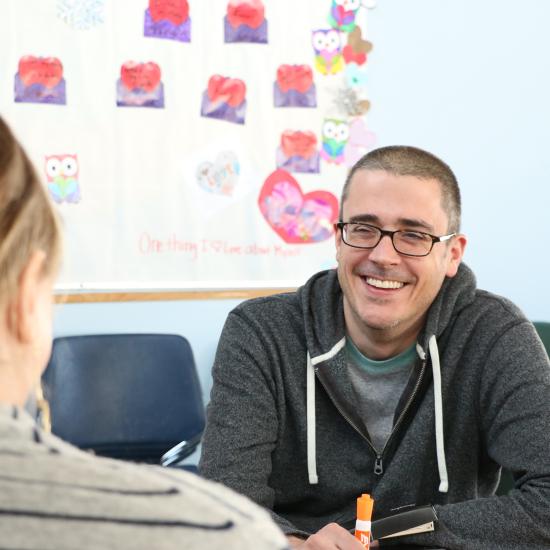Little Things Matter at Day Treatment
For a long time, sometimes for many years, parents of children in the Wilder Day Treatment program have faced the dilemma of whether to answer the phone when the school, child care or a service provider calls. As one parent shared with us:
"Usually the calls are to say my child is in trouble – swearing, refusing to follow directions, hitting and kicking other kids or adults, destroying property. The next thing I am told is that he can’t stay there, that I need to come get him, and on top of that, he can’t come back for 1-3 days. I’ve lost jobs because of too many phone calls and too much missed work. I love my son, but what am I supposed to do? None of my family or friends are willing to get him or keep him."
Day Treatment is the most intensive children's service offered through Wilder Mental Health and Wellness. Usually, children in this program have significant mental health needs that other outpatient mental health services have not been able to meet, and they have some of the most complex and challenging needs of the school-age clients served by Ramsey County Children’s Mental Health Case Management.
We believe that every child who joins Day Treatment has the capacity to make progress, and we focus on helping families and children feel supported and hopeful as they learn to manage their mental health symptoms.
Building Skills and Hope
Over time, the majority of parents and caregivers grow more hopeful. In a 2017 Wilder Research program evaluation, 13 of 16 parents and caregivers (81%) whose child received services in the past year felt more hopeful that things would get better for their child. Sixty-two percent of parents and caregivers indicated that their child’s ability to handle daily life had improved. My staff and I believe increased hopefulness of parents is critical to success during and following the services we provide at Day Treatment.
Children attend our Day Treatment five days a week. Each day, they take part in an hour of group therapy and two hours of group skills training, including practicing in locations throughout the community. In addition, we offer individual and family therapy and skills training as needed.
When children start the program, staff take on most of the responsibility for engaging, providing structure and nurturing children. As children develop relationships with the staff and understand the structure and expectations of the program, they take more responsibility for their own growth and success.
We maintain strong communication with parents through daily phone calls. Initially, our conversations and voicemails focus on the positive things we are learning about the child and on asking parents about what we might try with their child based on their expertise and previous experience. We always let parents know when a serious incident has occurred, but we make it clear that staff’s role is to handle problems in a way that promotes calming, restoring relationships and learning.
Little Things Matter
For families with children experiencing significant mental health needs, little things like these phone calls can matter a great deal. Recently, one parent shared with Wilder Day Treatment staff, “I heard you explain and reassure me about the daily phone calls, and I understood what you meant, but it took 4-5 months before the panicked feeling stopped when I saw you were calling me.”
Heather McMoore, MSW, LICSW, is the Clinical Manager of Community Services at Wilder where she manages Day Treatment, Children’s Mental Health Case Management and Behavioral Health Home services. For more than 28 years, Heather has offered hope and healing to children and families facing complex mental health issues.
